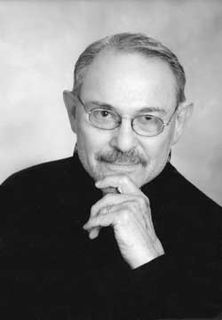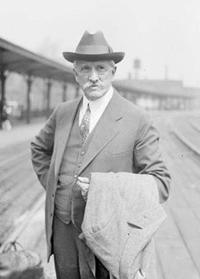A Quote by Immanuel Kant
The science of mathematics presents the most brilliant example of how pure reason may successfully enlarge its domain without the aid of experience
Quote Topics
Related Quotes
This example illustrates the differences in the effects which may be produced by research in pure or applied science. A research on the lines of applied science would doubtless have led to improvement and development of the older methods - the research in pure science has given us an entirely new and much more powerful method. In fact, research in applied science leads to reforms, research in pure science leads to revolutions, and revolutions, whether political or industrial, are exceedingly profitable things if you are on the winning side.
Mathematics has two faces: it is the rigorous science of Euclid, but it is also something else. Mathematics presented in the Euclidean way appears as a systematic, deductive science; but mathematics in the making appears as an experimental, inductive science. Both aspects are as old as the science of mathematics itself.
The totality of our so-called knowledge or beliefs, from the most casual matters of geography and history to the profoundest laws of atomic physics or even of pure mathematics and logic, is a man-made fabric which impinges on experience only along the edges. Or, to change the figure, total science is like a field of force whose boundary conditions are experience.
If you ask ... the man in the street ... the human significance of mathematics, the answer of the world will be, that mathematics has given mankind a metrical and computatory art essential to the effective conduct of daily life, that mathematics admits of countless applications in engineering and the natural sciences, and finally that mathematics is a most excellent instrumentality for giving mental discipline... [A mathematician will add] that mathematics is the exact science, the science of exact thought or of rigorous thinking.
A number of aspects of mathematics are not much talked about in contemporary histories of mathematics. We have in mind business and commerce, war, number mysticism, astrology, and religion. In some instances, writers, hoping to assert for mathematics a noble parentage and a pure scientific experience, have turned away their eyes. Histories have been eager to put the case for science, but the Handmaiden of the Sciences has lived a far more raffish and interesting life than her historians allow.
It has been a fortunate fact in the modern history of physical science that the scientist constructing a new theoretical system has nearly always found that the mathematics. . . required. . . had already been worked out by pure mathematicians for their own amusement. . . . The moral for statesmen would seem to be that, for proper scientific "planning", pure mathematics should be endowed fifty years ahead of scientists.
In the field of Egyptian mathematics Professor Karpinski of the University of Michigan has long insisted that surviving mathematical papyri clearly demonstrate the Egyptians' scientific interest in pure mathematics for its own sake. I have now no doubt that Professor Karpinski is right, for the evidence of interest in pure science, as such, is perfectly conclusive in the Edwin Smith Surgical Papyrus.









































